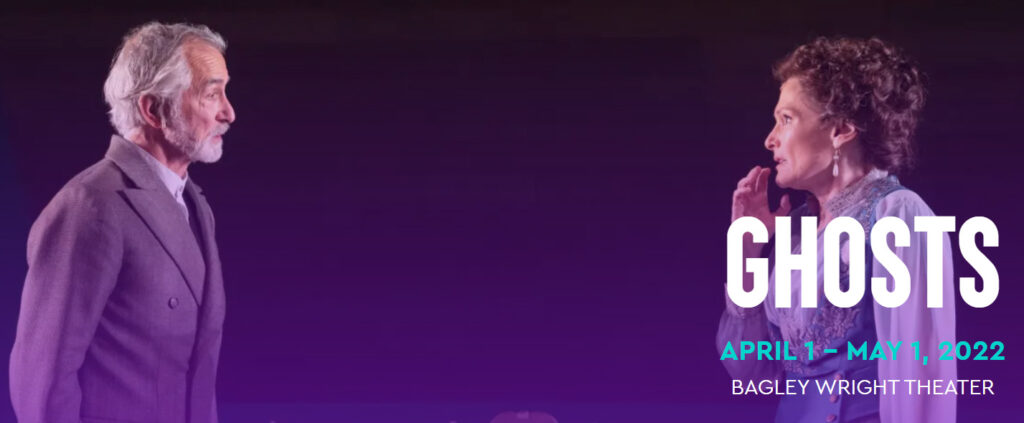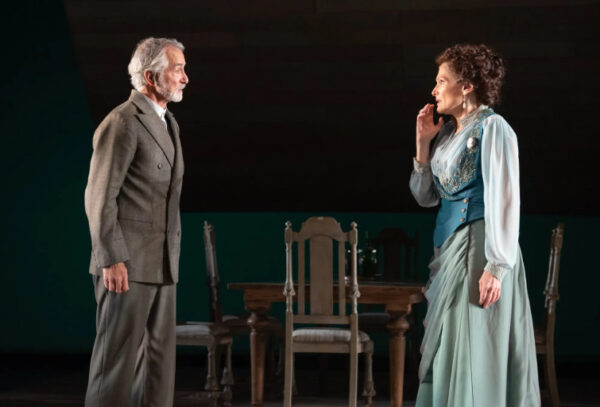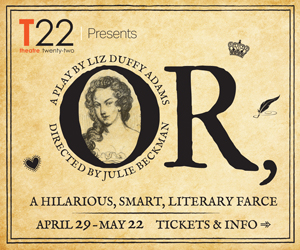
Modern audiences and especially younger members of those audiences can have a hard time relating to older theater works….even “master” works by acclaimed playwrights. Styles of playwriting change over time and plays that felt fresh 30, 50 or a hundred years ago are likely to not feel very relevant to a modern audience. Especially to audiences who might enjoy the recent trend towards very short, one act plays that focus on very contemporary issues.
Sometimes, great master works can transcend time…in fact, isn’t that part of the definition of a great work of art? Its ability to be meaningful long after its initial creation? And, to haunt us with the questions it brings up and the conversations that arise over those questions.
And, while some theater goers or students of literature might roll their eyes at the thought of reading or seeing a production of an old master like Henrik Ibsen, the awesomely bewhiskered Norwegian playwright who died nearly a hundred twenty years ago and the creator of such major plays as A Doll’s House, Hedda Gabler and the play we’re here to talk about, Ghosts, others relish the idea of revisiting a solid old workhorse of a play. Can an old master stand up to modern, “woke” scrutiny?
You betcha!
Especially when it’s Ghosts, one of Ibsen’s most haunting and most aptly named plays. The central themes of the play all revolve around the evils of White Male Supremacy and how the sins of the past can fester and linger to haunt and destroy those living in the present. Ibsen became an acclaimed playwriter because he WAS a pioneering Social Justice Warrior! His works frankly brought up subjects that the Establishment of his time had no interest in discussing: the rights of women, the abuses of the patriarchy and the Powers That Be that limited the rights of anyone not “free, white, male and 21”.
And, while I think any reading of the play or any production of it should make that abundantly clear, the current production of Ghosts onstage at Seattle Rep goes out of its way to make the material bluntly fresh and modern to twenty first century ears. Translator Paul Walsh and director Carey Perloff deliberately set out to create a clean new and very American take on the play…it’s Ghosts (mostly) stripped of its Victorian excess and tendency to melodrama and grand proclamations. It makes it a more boldly feminist and progressive work and one not afraid to point a finger at the problems created by a misogynistic, classist and racist patriarchy. That’s a stance that was astounding in 1881 and it’s still a relevatory and timely position to take in 2022.
For those of you in need of a Ghosts 101 synopsis…well, I could snap at you to go read one on Wikipedia but I’ll be kind: Ghosts is set in rural Norway where the local Lady of the Manor, Helena Alving lives alone in her manor house attended by young servant girl Regina and occassional visits from Pastor Manders, a spiritual and financial advisor when it comes to the constuction of a new Orphanage being built on the grounds of the Alving estate in honor of the late but not so great dead husband of Mrs. Alving. Returning to the Alving home is son Oswald, who has mostly lived away from home, first at school and of late in Paris where he is living an “artistic life”. Also lurking around is crusty old carpenter Jakob Engstrand, the supposed father of the servant girl Regina who doesn’t have any desire to spend much time with him. Regina has her eyes set on moving up the class ladder while Jakob is more interested in creating a home for old sailors and wants Regina to help him run it. Other things you should know: Manders and Helena were sweet on each other when they were young, but she was forced to marry the better off Alving against her will. And, Oswald has returned home because he has health woes.
Those health woes and much of all the other worry and strife haunting the plot of Ghosts are all caused by the long dead Mr. Alving, a minor member of the powers that be who was stuck in a role he wasn’t interested in playing (minor government official in a small provincial town) who spent his time having numerous affairs which led to him eventually getting syphilis which eventually killed him but not before congenitally passing it along to his son. It’s also revealed that Alving raped their maid who then became pregnant with the girl Regina who is unaware of her true parentage. The maid is then married off to Engstrand and herself subsequently dies. Thus the most deadly ghost in the play is the syphilis that surges through the blood of every character on stage except Manders…Oswald is obviously stricken with it (in a time when there was no effective treatment for syphilis) and all the other characters who have been exposed to it are apparently asymptomatic but…tick tock…
There’s much to admire with this production of Ghosts. I do like the new translation by Paul Walsh; it’s to the point and blunt which really enhances the character of Helena who no longer has to hide behind a coy façade of Victorian femininity; she’s now quite obviously embracing her new “woke” outlook on life and openingly amused by Manders and his pious hypocrisy and fear of public condemnation of anything not meeting the status quo. The script feels fresh and so does the direction by Carey Perloff. This production has great momentum and moves briskly along; the tendency towards long stagy pauses and histrionic acting has largely been scrubbed from this Ghosts.
That’s aided by the terrific acting from the cast and especially from the three senior actors, Mary Elizabeth Mastrantonio as Helena, David Strathairn as Manders and Thom Sesma as Engstrand. All three actors excel at getting that tone just right…the wry charms of Mastrantonio’s Helena dealing with the ridiculousness of Strathairn’s foolish Manders is espcially fun to watch. As is Seesma as the conniving Engstrand trying to pull the wool over everyone else’s eyes. The actors mined the humor in the material…this is an Ibsen that gets some laughs, mostly at the awful things that come out of Manders’ mouth as he piously chatises Helena for her liberal shortcomings. More proof that audiences have changed a lot over the decades….instead of gasps of indignation that Manders is an object of derision, the audience is now firmly on the side of Helena. Or, at least modern liberal Seattle audiences.
The two younger actors/characters have a tougher time of it and it’s not neccessarily through any fault of their own. Both Oswald and Regina, are more stock characters….Regina as conniving maid and Oswald as doomed, fatal son. Nikita Tewani as fine as the ambitious maid; she’s cooly frank in her desire to climb the ladder out of the serving classes. Poor Albert Rubio III has the harder job; Oswald is a tough character to portray because he has to convey a very sudden and very obvious deterioration in health onstage in a short period of time and this is the only section of the play that still feels a bit like a Victorian melodrama.
The other chief asset of this production is the inclusion of David Coulter who wrote and performs original music onstage during the performance. Sometimes subtle and barely noticeable and other times brashly loud and stunningly dramatic, the music is really a sixth character in the plot. Mr. Coulter is onstage in a glass enclosed room that also features a large portrait of the late Mr. Alving. Dane Laffrey’s smart scenic design here, creates space onstage to center physically the themes of the play, the ‘ghost’ at the heart of the story. It’s very effective and enhances the other subtle Nordic elements of the design.
I very much enjoyed this production of Ghosts. It’s powerful story still resonates after a hundred and forty years. This production was smartly conceived and executed by its artistic team. It’s handsomely designed and has a superb ensemble of actors.
Ghosts is a timely ghost story still worth telling, seeing and experiencing.






















